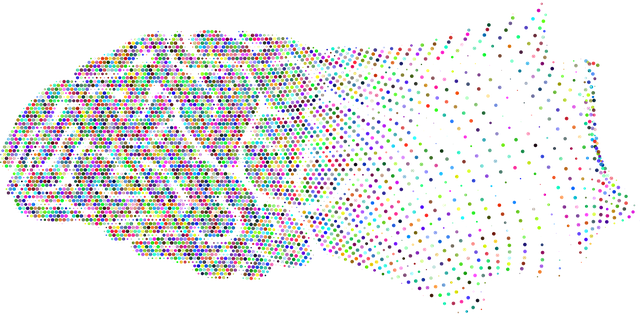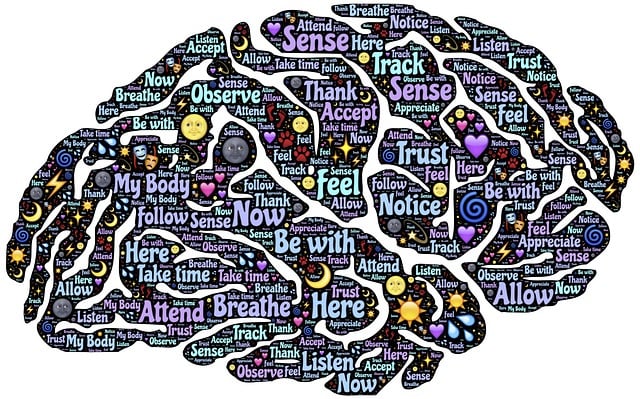Parker Gender-Affirming Care Therapy (PGACT) leverages data analysis for personalized treatment of gender dysphoria, using qualitative and quantitative methods from questionnaires to interviews. Data preparation involves cleaning and coding across clinical settings for consistency. Techniques like Emotional Well-being Promotion and journaling enhance data insights, guiding interventions and self-reflection. PGACT's holistic approach addresses burnout, cultural competency, and trauma support, empowering healthcare providers with evidence-based strategies while navigating ethical challenges in mental health data analysis, ensuring privacy and confidentiality. Future prospects include innovative technologies and self-care interventions for enhanced well-being outcomes.
Mental health data analysis is transforming clinical practice, with advanced techniques offering valuable insights into patient well-being. This article explores the power of data interpretation, from understanding the nuances of mental health measurements to real-world applications like Parker Gender-Affirming Care Therapy, which leverages data for personalized care. We delve into identifying trends, enhancing decision-making, and address ethical considerations shaping the future of mental health data analysis. Discover how these strategies are revolutionizing patient outcomes and guiding clinical practice.
- Understanding Mental Health Data: Collection and Preparation
- Parker Gender-Affirming Care Therapy: A Case Study in Data-Driven Approach
- Interpreting Trends and Patterns: Insights for Clinical Decision Making
- Ethical Considerations and Future Directions in Mental Health Data Analysis
Understanding Mental Health Data: Collection and Preparation

Understanding Mental Health Data begins with recognizing that data collection methods are as crucial as the analysis itself. In the context of Parker Gender-Affirming Care Therapy, for instance, gathering qualitative and quantitative data is essential to understanding the emotional landscapes of individuals navigating their gender identity. This involves various strategies, from structured questionnaires to open-ended interviews, ensuring a comprehensive view.
Preparation of this data necessitates careful cleaning and coding processes. In a Community Outreach Program Implementation, aligning data collection protocols across different settings—be it clinical or community-based—is vital for consistency. Techniques such as Emotional Well-being Promotion can be incorporated into the preparation phase, focusing on transforming raw data into meaningful insights that guide interventions. Additionally, promoting Mental Wellness Journaling Exercises as part of data preparation encourages self-reflection and provides rich qualitative data, enhancing the interpretation capabilities of analysts.
Parker Gender-Affirming Care Therapy: A Case Study in Data-Driven Approach

The Parker Gender-Affirming Care Therapy (PGACT) is a groundbreaking example of how data analysis can transform mental health treatment. By employing a data-driven approach, this therapy program has achieved remarkable results in supporting individuals navigating gender dysphoria and related psychological challenges. PGACT meticulously collects and analyzes patient data, including demographics, symptom severity, and treatment outcomes, to guide personalized care plans. This method allows healthcare providers to identify patterns and trends within the patient population, ensuring that interventions are evidence-based and tailored to individual needs.
Through its focus on data analysis, PGACT goes beyond traditional therapy models. It not only facilitates burnout prevention strategies for healthcare providers by streamlining processes and reducing workload but also emphasizes cultural competency training to improve patient outcomes. By integrating Trauma Support Services within the framework, PGACT addresses the complex needs of individuals who may have experienced trauma related to their gender identity. This holistic approach ensures that patients receive comprehensive care while empowering healthcare providers with valuable insights for more effective treatment delivery.
Interpreting Trends and Patterns: Insights for Clinical Decision Making

Mental health data analysis offers a powerful tool for identifying trends and patterns within patient populations, which can greatly aid clinical decision-making processes. By employing advanced statistical methods and visualization techniques on collected data, healthcare professionals can uncover valuable insights related to various aspects of mental well-being. For instance, analyzing trends in depression rates across different age groups may reveal disproportionate affects on youth or older adults, guiding the development of targeted interventions.
Moreover, examining patterns in treatment outcomes, such as those achieved through Parker Gender-Affirming Care Therapy, can provide critical information for improving patient care. Data might show that this approach leads to significant self-esteem improvement and coping skills development, particularly among transgender individuals. Such findings could fuel further research, enhance healthcare provider cultural competency training, and ultimately contribute to more effective treatment strategies.
Ethical Considerations and Future Directions in Mental Health Data Analysis

As mental health data analysis advances, ethical considerations come to the forefront. Ensuring privacy and confidentiality is paramount, especially with sensitive information like therapy sessions. The rise of Parker Gender-Affirming Care Therapy underscores the need for robust data protection measures, as it involves intimate discussions related to gender identity and expression. Researchers must adhere to strict guidelines to safeguard clients’ identities, adhering to ethical standards that prioritize trust and respect.
Looking ahead, future directions in mental health data analysis involve exploring innovative strategies like Empathy Building Strategies and Stress Reduction Methods using technology. Developing evidence-based Self-Care Routine Development interventions could be a game-changer for enhancing resilience and overall well-being. By leveraging data effectively while maintaining ethical integrity, we can create more personalized and accessible support systems, ultimately improving mental health outcomes.
Mental health data analysis has evolved into a powerful tool, as demonstrated by the case study of Parker Gender-Affirming Care Therapy. By understanding and interpreting complex data sets, professionals can uncover valuable trends and patterns that inform clinical decisions. This field holds immense potential to improve patient outcomes and personalize treatments, but it also raises ethical considerations regarding privacy and consent. As technology advances, responsible data analysis practices will be crucial in shaping the future of mental health care, ensuring a more inclusive and effective approach for all individuals seeking support.














